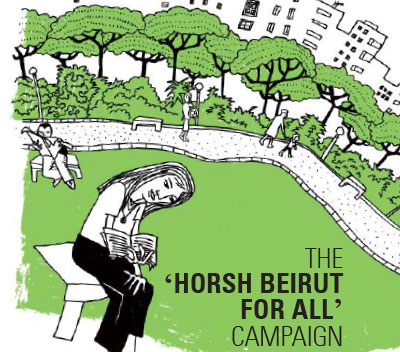Public space is essential for urban life – it enables people from all social strata and backgrounds to meet, enjoy the space together, and form a harmonious identity. Yet, Beirut is notorious for its lack of such spaces. It is said that Beirut comes from the Phoenician word Beriet, which translates to Sanawbar (Pine). In the early 17th century, Emir Fakhr al-Din II ordered the planting of a pine forest, Horsh Beirut, which spread over 1,250,000 meters squared to the southern edge of Beirut. Over the centuries, the trees were abused by the armies of the Crusaders, Mamluks, Ottomans, and the World War II allies. Each took turn in cutting down its timber to build ships and weapons.
Menu


